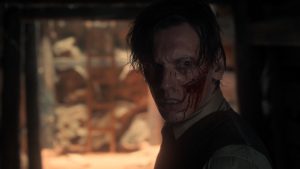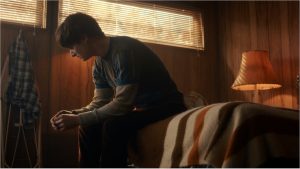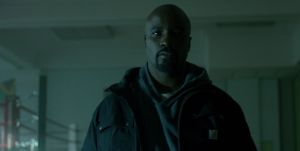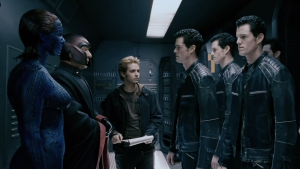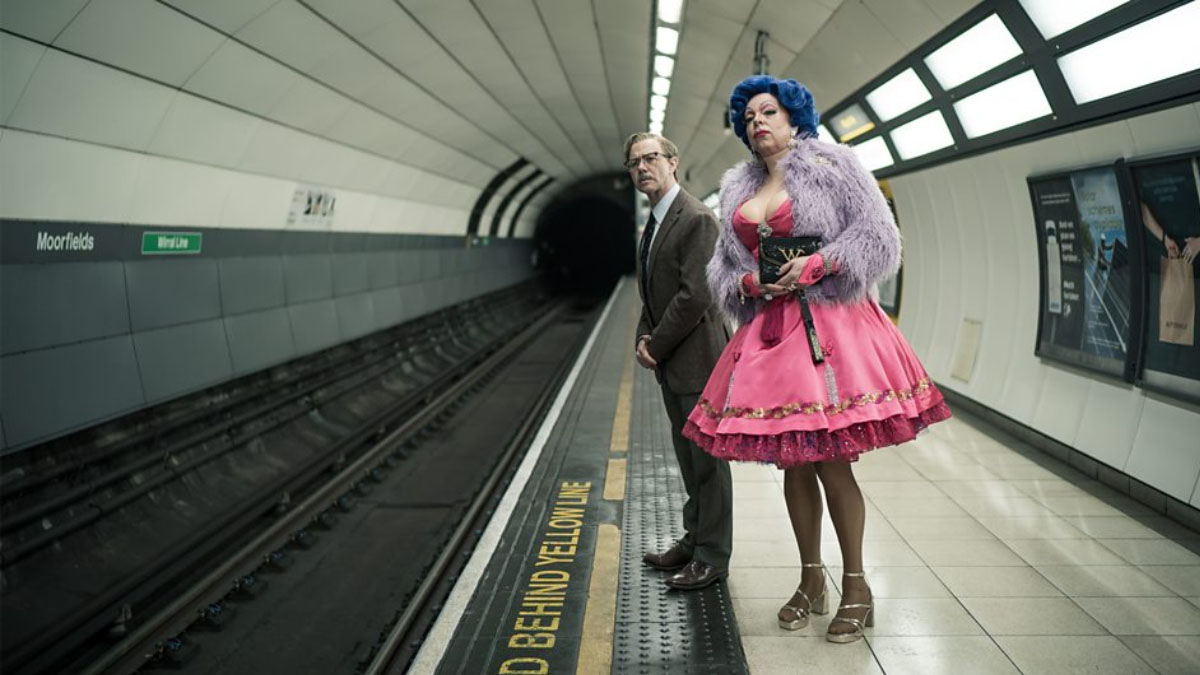
Warning: this Inside No. 9 review contains plot spoilers.
Nine characters! And we knew them all in what, under three minutes? That has to be some kind of screenwriting record. You can watch hours and hours of other shows and come away barely on nodding terms with the lead roles. Here, inside a few lines of dialogue, it was easy to imagine the “Boo to a Goose” ensemble – Gerry, Edith, Elena, Wilma, Cleo, Harold, Raymond, Finn and Mossy – walking off the screen and into their lives.
Well, until that final reveal it was easy to imagine. After that, things turned excitingly unfamiliar.
What began as a morality play about prejudice and compassion twisted into a dystopian sci-fi based on that most Inside No. 9 of Inside No. 9 things – a pun. What if, asks the episode, the “replacement service” sent to the trapped passengers on a Liverpool underground train wasn’t replacing the train, but the people? In a dark surprise, the carriage doors opened in the final minutes to reveal on the platform three clones whose gassed-to-death counterparts were being rhythmically zipped into body bags. See it. Say it. Sorted.
In a covertly authoritarian society, Cleo, Edith and Mossy (Susan Wokoma, Siobhan Finneran and Charlie Cooper) had been deemed potential troublemakers whose individualist threat had to be snuffed out. Their Stepfordian replacements would slot right in to their existing lives and pose no threat of rebellion. Stand up for civil liberties? These three now wouldn’t say boo to a goose.
Their fellow passengers in carriage number nine were either undercover agents like Finn (Joel Fry), or had previously undergone the replacement procedure like Gerry and Harold (Shearsmith and Matthew Kelly), or, like Wilma, Raymond, and Elena (Pemberton, Mark Bonnar and Philippa Dunne), had passed this deadly test with flying colours and been judged no risk to the status quo.
How, exactly, do the alien/robot/genetic clone replacements work? You decide. Maybe they don’t. Explanations are for the next bit of the tale, which is for us to imagine. It’s not a novel but a short story, an enjoyably nasty seed like those planted by Philip K Dick, Kurt Vonnegut and The Twilight Zone, but not the whole plant. This tense half-hour achieved enough in its runtime without being expected to do more.
It was a guest star bonanza, for a start. Instead of the usual one or two recognisable faces appearing next to Pemberton and Shearsmith, there was a carriageful for director George Kane to wrangle. Mark Bonnar is a gravitational force who always seems to pull other actors into his orbit, and did exactly that as rage-filled martinet Raymond. With very few lines, Siobhan Finneran made Edith a minor key tragic hero. Matthew Kelly’s unhinged space cadet Harold offered a whole other flavour, most powerfully in his apocalyptic re-write of Matthew V-VII’s Sermon on the Mount. It felt full but not overcrowded, and with enough shifts in tone to keep us on our toes.
Largely, the guest actors provided the drama while the creators provided the laughs. Pemberton disappeared into scene-stealing brazen drag queen Wilma, while Shearsmith, smugly footnoting his quote “Shakespeare”, blowing his top over bamboo roots and hitting an English ‘et’ at the end of Le Creuset was the funniest version of his Pooterish type that this show’s seen. And while we’re praising details, Gerry’s hand hovering protectively by Edith’s lower back as she boarded the train laid out everything we needed to know about their careful, well-behaved marriage.
The twist was well-disguised but, as revealed on a second viewing, seeded. The creepy synth score hinted at a sci-fi story rather than domestic one, and the paranoid, dystopian posters warning travellers that they were being watched suggested that this particular number nine wasn’t as everyday as it seemed. Raymond’s newspaper word puzzle offered up “actor, fake, task force” as clues, while Harold’s extract from The Mikado gave us a “little list of society offenders who might well be underground – and who never would be missed.”
Even without the grisly ending and our guesswork leading up to it, “Boo to a Goose” was compelling. The human tensions provided enough drama that if it had revealed itself to be simply An Inspector Calls-style morality play about social responsibility, it’d still have done its job as entertainment. Inside No. 9’s creators are so practised at conjuring these scenarios, they don’t waste a second.
Now 50 episodes in, Steve Pemberton and Reece Shearsmith are Olympic medallists at this job – a two-man bobsleigh team who run hell for leather from the top to push their stories into momentum before leaping inside, tucking in everything that requires tucking, and synchronously tilting the thing in one direction and then another until it glides over the finish line.
After this final series ends, I’ll miss watching them in action.
Inside No. 9 series 9 continues on Wednesday May 15 at 10pm on BBC Two and iPlayer.
The post Inside No. 9 Series 9 Episode 1 Review: Boo to a Goose appeared first on Den of Geek.


